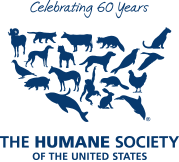In October the Colorado Council of Churches voted to promote a Meatless Monday program among its covenanting congregations and affiliates. So what is Meatless Monday?
The history of Meatless Mondays dates back to World War I, when the U.S. Food Administration asked families to reduce consumption of certain foods to help aid the war effort. In addition to Meatless Mondays there was also Wheatless Wednesdays. The program was relaunched during World War II by President Roosevelt, and continued in the post-war years under President Truman to help feed a war-ravaged Europe.
Now Meatless Mondays is about a different war, a war on our environment, public health, worker rights and animal welfare.
Today the average American eats 75 more pounds of meat a year than previous generations, and our current consumption of 270.7 pounds per year makes us the second highest meat-eating country in the world (Luxembourg is first at 301.4 pounds per year). Americans are consuming 1.5 times more protein then the USDA recommended guidelines and most of it comes from meat, which is often high in saturated fat and cholesterol, in turn leading to health problems like obesity, heart disease, coronary artery disease, Diabetes, cancer, and high blood pressure.
Raising animals for human consumption accounts for as much as 9% of carbon dioxide (CO2), 37% of methane (CH4), and 65% of the nitrous oxide (N2O) that is released into the atmosphere as greenhouse gases. Waste run off from factory farms pollutes ground water, rivers and streams, resulting in massive fish kills and a “dead zone” in the Gulf of Mexico where no animal can survive owing to a lack of oxygen. In addition, the overuse of antibiotics in animals has created resistant strains of bacteria that make it harder to cure illness in humans.
Workers in the meat production process are often unskilled and undocumented immigrants who labor under hazardous conditions, are paid low wages, and have no health benefits when they become injured. Consider the fact that 12.6 workers per 100 either become injured or ill as a direct result of working in meat production, and Human Rights Watch has concluded that conditions in these facilities violate basic human and worker rights.
Ironically, the United States exports about as much meat as it imports, and those imports come from countries where indigenous people have been driven from their land. Their forests are cut down to make room for cattle grazing and for growing crops to feed the cattle and their water is diverted for animal agriculture, often leaving no clean water for people, or the people are charged a fee to access it.
So, as you can see, meat consumption can have an adverse impact on the environment, public health, worker rights, and of course the animals that are often raised in tightly confined unsanitary conditions, ways in which God never intended.
Which brings us back to Meatless Mondays.
If everyone in the United States gave up eating meat for just one day per week it would reduce:
- 100 billion gallons of water from being used, enough to supply all the homes in New England for almost 4 months.
- 1.5 billion pounds of crops otherwise fed to livestock, enough to feed the state of New Mexico for more than a year.
- 70 million gallons of gas, enough to fuel all the cars of Canada and Mexico combined with plenty to spare.
- 3 million acres of land from being razed for grazing, an area more than twice the size of Delaware.
- 33 tons of antibiotics from being used to prevent illness in animals that are being raised in tightly confined conditions.
The Humane Society of The United States, which is a Covenanting Affiliated Partner of the Colorado Council of Churches, has free resources available to help promote Meatless Mondays among your congregants and can provide a guest speaker to talk about our collective duty to care for God’s creation and how programs like Meatless Mondays can help. For more information, please contact Rev. Roland Halpern at rh******@***********ty.org

